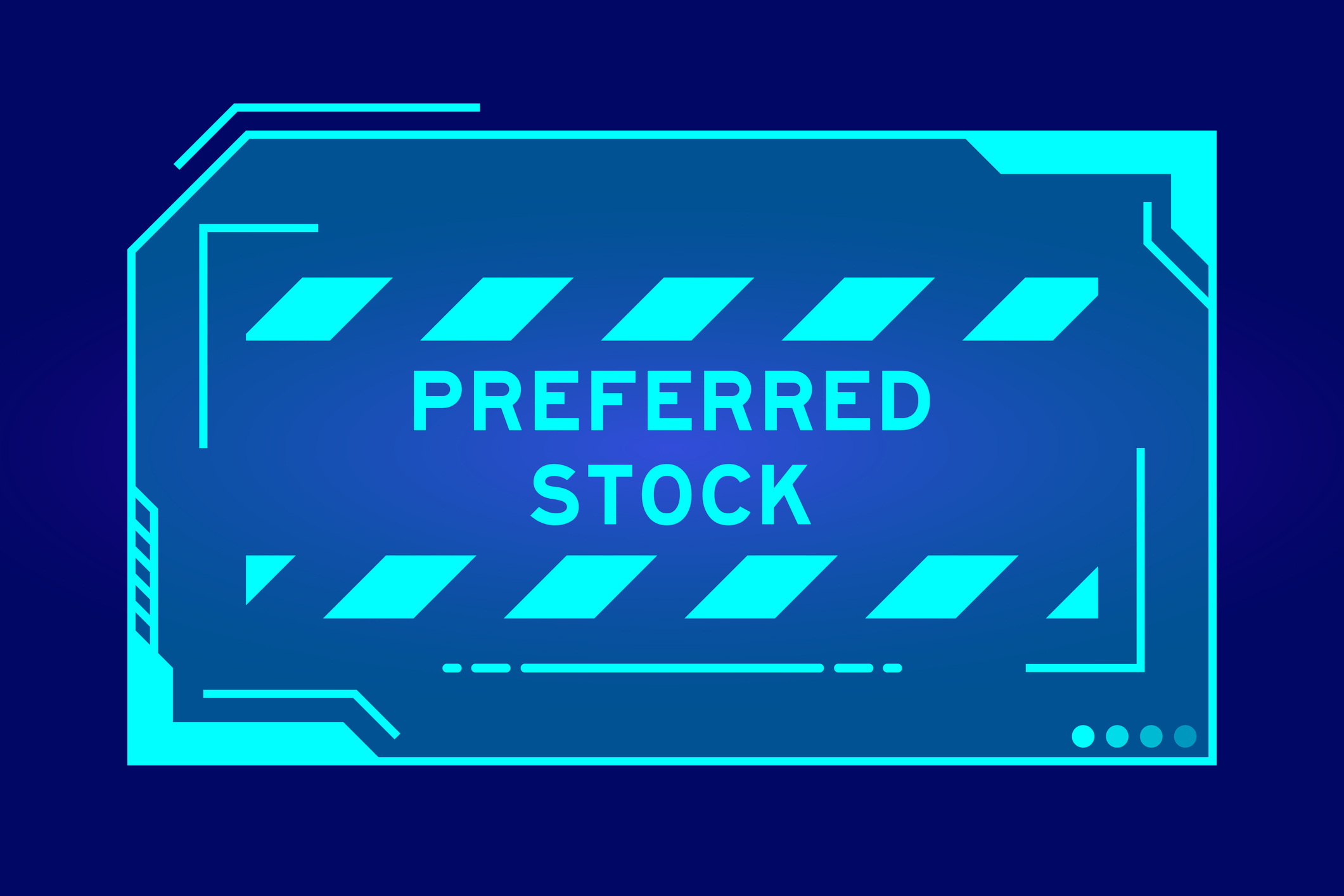10 Best Funds for Aggressive Investors
Think your portfolio is too tame?


Profit and prosper with the best of Kiplinger's advice on investing, taxes, retirement, personal finance and much more. Delivered daily. Enter your email in the box and click Sign Me Up.
You are now subscribed
Your newsletter sign-up was successful
Want to add more newsletters?

Delivered daily
Kiplinger Today
Profit and prosper with the best of Kiplinger's advice on investing, taxes, retirement, personal finance and much more delivered daily. Smart money moves start here.

Sent five days a week
Kiplinger A Step Ahead
Get practical help to make better financial decisions in your everyday life, from spending to savings on top deals.

Delivered daily
Kiplinger Closing Bell
Get today's biggest financial and investing headlines delivered to your inbox every day the U.S. stock market is open.

Sent twice a week
Kiplinger Adviser Intel
Financial pros across the country share best practices and fresh tactics to preserve and grow your wealth.

Delivered weekly
Kiplinger Tax Tips
Trim your federal and state tax bills with practical tax-planning and tax-cutting strategies.

Sent twice a week
Kiplinger Retirement Tips
Your twice-a-week guide to planning and enjoying a financially secure and richly rewarding retirement

Sent bimonthly.
Kiplinger Adviser Angle
Insights for advisers, wealth managers and other financial professionals.

Sent twice a week
Kiplinger Investing Weekly
Your twice-a-week roundup of promising stocks, funds, companies and industries you should consider, ones you should avoid, and why.

Sent weekly for six weeks
Kiplinger Invest for Retirement
Your step-by-step six-part series on how to invest for retirement, from devising a successful strategy to exactly which investments to choose.
Think your portfolio is too tame? Does it mostly contain blue chips and electric utility stocks and not enough racy tech and biotech stocks? Maybe it’s time to boost your level of aggression in search of bigger returns, both over the next year and over the long term. Check out our picks below — they’re our 10 favorite stock mutual funds for aggressive investors.
In truth, these funds are nowhere near as aggressive as you might find. You won’t find any funds that try to triple the return of a semiconductor-stock index or focus on small Indian companies or seek to bet on the price of silver falling. Rather, the ten funds — six of which are members of the Kiplinger 25, the list of our favorite no-load funds — focus on various corners of the stock world, from plain-vanilla small-company stocks to health care stocks to stocks in developing countries. They may not deliver the thrills of triple-leverage sector funds, but all offer potentially higher returns without taking extraordinary risks.
Returns are through November 7.

Akre Focus
- Three-year annualized return: 21.3%Annual expense ratio: 1.35%Minimum initial investment: $2,000Biggest holdings: American Tower, Moody’s, Markel, Colfax and MasterCard
- Akre Focus (AKREX), which is a member of the Kiplinger 25, launched in late 2009. Since then, it has returned 18.4% annualized, beating Standard & Poor’s 500-stock index by an average of 2.5 percentage points per year.
Managers Charles Akre, John Neff and Tom Saberhagen try to find what they call “compounding machines.” Firms with strong balance sheets and businesses that offer an outstanding return on investment are just a start. Neff says that what he and his colleagues really want are what they call “bottleneck businesses” — companies with a durable competitive advantage, such as Apple, Moody’s and MasterCard.
The managers also prefer executives who reinvest capital rather than pay dividends. “Dividends are the result of a successful business, but they are not essential to compounding growth,” says Saberhagen. “Reinvestment is critical to compounding — to grow earnings upon earnings and to do so consistently over time.” That’s one of the reasons the managers like Danaher, an industrial conglomerate that was built from a string of smartly executed acquisitions.

Baron Small Cap
- Three-year annualized return: 17.1%Annual expense ratio: 1.31%Minimum initial investment: $2,000Biggest holdings: SBA Communications, TransDigm Group, Gartner, FleetCor Technologies, Waste Connections
Cliff Greenberg has achieved impressive results at Baron Small Cap (BSCFX), which he has run since its 1997 launch. The fund’s 10.1% annualized return since inception beats the Russell 2000 small-company index by an average of 3.0 percentage points per year. A $10,000 investment in the fund at the beginning would be worth more than $50,000 today; that’s $20,000 more than if you had invested in a fund that tracks the Russell 2000.
Baron Small Cap, another Kip 25 member, focuses on growing companies with market capitalizations of $2.5 billion and stocks trading at a discount to what Greenberg thinks a company is worth. Unlike many other small-cap growth managers, however, he tends to hold on to winners. The fund’s 20% annual turnover ratio is considerably lower than the 76% average turnover for the typical small-company fund. (A 20% turnover implies an average holding period of five years; a 76% ratio, less than 1.5 years.) Two of Greenberg’s top holdings, wireless tower operator SBA Communications and TransDigm Group, a maker of aircraft parts, have been in the fund since 2004 and 2006, respectively.

Fidelity Select Biotechnology
- Three-year annualized return: 45.1%Annual expense ratio: 0.76%Minimum initial investment: $2,500Biggest holdings: Gilead Sciences, Vertex Pharmaceuticals, Celgene, Regeneron Pharmaceuticals, Alexion Pharmaceuticals
Managers of Fidelity Select sector funds can rotate as often as every two years. But Rajiv Kaul has managed Fidelity Select Biotechnology (FBIOX) since 2005. Since then, the fund has returned 18.0% annualized. That beats the S&P 500 by an average of 10 percentage points per year, and the S&P 1500 Health Care index by an average of nearly 6.5 points per year.
Before he buys a stock, Kaul examines each company’s drug pipeline, the market size of each potential medication, and its valuation relative to other opportunities. In the end, the fund’s 200-odd holdings land in one of four themes: long-term winners with strong pipelines of new drugs, companies that are staging a turnaround, firms with breakthrough innovations, and firms that are in the early stages of testing a promising treatment.
It helps to have abs of steel to invest in this fund: Over the past year, the fund has been four times more volatile than the S&P 500. But investors have been well rewarded for the extra risk; the fund returned 43.5%, well ahead of the 18.7% return of the S&P.

Fidelity New Millennium
- Three-year annualized return: 19.2%Annual expense ratio: 0.87%Minimum initial investment: $2,500Biggest holdings: Microsoft, Chevron, General Electric, Johnson & Johnson, Wells Fargo
Manager John Roth takes advantage of the fund’s flexibility, which allows him to invest in companies of any size. Fidelity New Millennium (FMILX), another member of the Kip 25, holds shares of older, established companies (such as International Business Machines), newbies (Tesla Motors) and outfits on the rebound (JPMorgan Chase).
Roth has a unique background that fits well with this go-anywhere fund. Since he joined Fidelity in 1999, he has managed several sector funds, including Select Chemicals, Utilities, Consumer Discretionary and Multimedia. Such varied experience means he’s analyzed all sorts of companies, including those that are sensitive to the direction of the overall economy and those that tend to grow steadily regardless of the economic environment. He puts all of this knowledge to work at New Millennium and gets good results. Since becoming New Millennium’s manager in July 2006, the fund has returned 9.4% annualized, an average of 1.4 percentage points per year more than the return of the S&P 500.

Harding Loevner Emerging Markets Advisor
- Three-year annualized return: 7.0%Annual expense ratio: 1.47%Minimum initial investment: $5,000Biggest holdings: Taiwan Semiconductor Manufacturing, Samsung Electronics, AIA Group, SABMiller, Aspen Pharmacare
- Harding Loevner Emerging Markets (HLEMX), a Kip 25 member, is one of the few emerging-markets stock funds to have consistently outpaced the MSCI Emerging Markets benchmark. The fund’s four leaders — top managers Rusty Johnson and Craig Shaw, and co-managers Scott Crawshaw and Richard Schmidt — don’t make bets on individual countries. Rather, they fill the fund company by company, looking for growing, high-quality firms with little debt and steady-to-improving profit margins.
- With just 79 stocks, the managers don’t have exposure to every emerging nation. Greece, for instance, is a no-show in their fund. “We struggle to find investment candidates in Greece,” the managers said in a recent report.
South Africa, on the other hand, is “target rich.” The fund has 6% of its assets invested there, in six stocks. Its biggest South African holding, Aspen Pharmacare, a maker of drugs and nutritional products, has notched a 30.4% gain over the past 12 months. The fund’s biggest country weightings are China and Hong Kong (15.3% of assets), India (10.4%) and Taiwan (9.2%).

Homestead Small Company Stock
- Three-year annualized return: 19.9%Annual expense ratio: 0.91%Minimum initial investment: $500Biggest holdings: iShares Core S&P Small-Cap ETF, iShares Russell 2000 Value ETF, Knight Transportation, Encore Capital Group, Werner Enterprises
It’s been a tough year for small-company stocks and funds that invest in them. But over the past 12 months, Homestead Small Company Stock (HSCSX), a member of the Kip 25, has outpaced the Russell 2000 small-company index by nearly one percentage point.
Homestead’s quartet of managers — Mark Ashton, Prabha Carpenter, Peter Morris and Stuart Teach — hunt for out-of-favor stocks whose businesses are poised to turn around. That kind of process typically takes patience, and the managers show it with their long-term buy-and-hold strategy: In recent years, Small Company Stock’s average annual turnover ratio has been about 1%, which means that the fund holds stocks for decades. The typical small-company fund, by contrast, has an average turnover ratio of 76%, suggesting an average holding period of just a bit more than one year.

Matthews Asian Growth & Income
- Three-year annualized return: 9.5%Annual expense ratio: 1.08%Minimum initial investment: $2,500Biggest holdings: AIA Group, Taiwan Semiconductor, Jardine Matheson Holdings, Singapore Technologies Engineering, United Overseas Bank
- Matthews Asian Growth & Income (MACSX) takes some of the edge off investing in a go-go growth region by focusing on dividend-paying stocks (about 84% of assets at last report), preferred stocks (4% of assets) and convertible securities (9%). Convertibles are hybrid securities (they can be bonds or preferred stocks) that let you convert your holdings into the common stock of the issuing company at a preset price.
The mix, say managers Robert Horrocks and Kenneth Lowe, means fewer bumps than the typical fund that invests in Asia — and more upside potential. Over the past three years, Asian Growth & Income, a member of the Kiplinger 25, has been about 25% less volatile than its peers, and yet it has outpaced the typical Pacific fund by an average of 1.1 percentage points per year. Most of the fund’s assets are invested in the region’s bigger economies, such as China/Hong Kong (30%), Singapore (16%) and South Korea (10%). It also holds securities in a smattering of less-advanced nations, including Vietnam, Thailand, Indonesia and the Philippines.

Primecap Odyssey Growth
- Three-year annualized return: 21.4%Annual expense ratio: 0.65%Minimum initial investment: $2,000Biggest holdings: Amgen, Roche Holding, Seattle Genetics, Biogen Idec, Eli Lilly
The publicity-shy managers of Primecap Odyssey Growth (POGRX) let their performance do the talking. Their shop, Primecap Management, in Pasadena, Calif., features some of the best stock pickers in the business.
The foursome — Mohsin Ansari, Joel Fried, Theo Kolokotrones and Alfred Mordecai — look for out-of-favor growing companies that have a clear catalyst for growth that will propel the stock upward over the next three to five years. The process means they buy when others are selling, and then they wait. Odyssey Growth has a turnover ratio of 10%, which implies a typical holding period of 10 years. Indeed, 28 of the fund’s 100 holdings have been in the portfolio since it launched in late 2004, including some top holdings such as biotech biggie Amgen and Swiss drugmaker Roche Holdings. The fund is heavy on health care and technology stocks, which account for 70% of the fund’s assets. Two of the most recent additions are Google and the Chinese e-commerce Web site Alibaba Group Holdings.

T. Rowe Price Global Technology
- Three-year annualized return: 23.5%Annual expense ratio: 0.95%Minimum initial investment: $2,500Biggest holdings: Alibaba Group Holding, Amazon.com, Discovery Communications, Google, Liberty Global
Joshua Spencer has only been manager of T. Rowe Price Global Technology (PRGTX) since mid 2012, but he’s been a technology stock analyst at Price since 2004. In the two years-plus since he stepped in, the fund, which focuses on leading global tech firms, has returned an annualized 31.4%, which beats the MSCI ACWI/Information Technology index by an average of 10.5 percentage points per year. The fund’s global mandate means Spencer is free to roam the world looking for opportunity, with a goal of investing 30% of the fund’s assets overseas. At last report, about 63% of assets were in U.S. companies, 13% in China and 11 % in the U.K.
Spencer recently picked up shares of Qunar Cayman Islands, an online travel company that operates in China. In a recent report, Spencer called Qunar “the Priceline of China” (all the more fitting because Priceline is barred from operating there). The fund holds 53 stocks, including Priceline.

Vanguard Health Care
- Three-year annualized return: 28.1%Annual expense ratio: 0.35%Minimum initial investment: $3,000Biggest holdings: Actavis, Merck, Bristol-Myers Squibb, UnitedHealth Group, AstraZeneca
- Vanguard Health Care (VGHCX) is the Grand Pooh-Bah of health care sector funds. Not only is it the biggest, it also charges the least of any health care mutual fund (exchange-traded funds tend to cost less). What’s more, even as Vanguard Health outpaced 60% of its peers over the past decade, it managed to do so with less volatility than any other health fund.
Manager Jean Hynes focuses on medical innovators and firms that will benefit from the changing U.S. health care system. Companies at the forefront of cancer treatments, including AstraZeneca, Bristol-Myers Squibb, Incyte, Merck and Roche, have helped the fund’s returns in recent years. Hynes, who works for Wellington Management, in Boston, also believes the new health care system will boost managed-care organizations, such as UnitedHealth and Aetna, and drugstore chains, such as CVS and Walgreens, which will benefit from higher sales as more Americans sign up for health insurance.
Hynes has been a manager of the fund since 2008, but she has been its sole manager only since 2013. That’s when co-manager Ed Owens, who had been with the fund since it launched in 1984, retired. In her first (nearly) two years at the helm, Hynes has posted a cumulative 78% return, 18 percentage points ahead of the fund’s benchmark, the MSCI ACWI/Health Care index.
Profit and prosper with the best of Kiplinger's advice on investing, taxes, retirement, personal finance and much more. Delivered daily. Enter your email in the box and click Sign Me Up.

Nellie joined Kiplinger in August 2011 after a seven-year stint in Hong Kong. There, she worked for the Wall Street Journal Asia, where as lifestyle editor, she launched and edited Scene Asia, an online guide to food, wine, entertainment and the arts in Asia. Prior to that, she was an editor at Weekend Journal, the Friday lifestyle section of the Wall Street Journal Asia. Kiplinger isn't Nellie's first foray into personal finance: She has also worked at SmartMoney (rising from fact-checker to senior writer), and she was a senior editor at Money.
-
 Dow Adds 1,206 Points to Top 50,000: Stock Market Today
Dow Adds 1,206 Points to Top 50,000: Stock Market TodayThe S&P 500 and Nasdaq also had strong finishes to a volatile week, with beaten-down tech stocks outperforming.
-
 Ask the Tax Editor: Federal Income Tax Deductions
Ask the Tax Editor: Federal Income Tax DeductionsAsk the Editor In this week's Ask the Editor Q&A, Joy Taylor answers questions on federal income tax deductions
-
 States With No-Fault Car Insurance Laws (and How No-Fault Car Insurance Works)
States With No-Fault Car Insurance Laws (and How No-Fault Car Insurance Works)A breakdown of the confusing rules around no-fault car insurance in every state where it exists.
-
 The 24 Cheapest Places To Retire in the US
The 24 Cheapest Places To Retire in the USWhen you're trying to balance a fixed income with an enjoyable retirement, the cost of living is a crucial factor to consider. Is your city the best?
-
 5 Stocks to Sell or Avoid Now
5 Stocks to Sell or Avoid Nowstocks to sell In a difficult market like this, weak positions can get even weaker. Wall Street analysts believe these five stocks should be near the front of your sell list.
-
 Best Stocks for Rising Interest Rates
Best Stocks for Rising Interest Ratesstocks The Federal Reserve has been aggressive in its rate hiking, and there's a chance it's not done yet. Here are eight of the best stocks for rising interest rates.
-
 The Five Safest Vanguard Funds to Own in a Volatile Market
The Five Safest Vanguard Funds to Own in a Volatile Marketrecession The safest Vanguard funds can help prepare investors for market tumult but without high fees.
-
 The 5 Best Inflation-Proof Stocks
The 5 Best Inflation-Proof Stocksstocks Higher prices have been a major headache for investors, but these best inflation-proof stocks could help ease the impact.
-
 5 of the Best Preferred Stock ETFs for High and Stable Dividends
5 of the Best Preferred Stock ETFs for High and Stable DividendsETFs The best preferred stock ETFs allow you to reduce your risk by investing in baskets of preferred stocks.
-
 What Happens When the Retirement Honeymoon Phase Is Over?
What Happens When the Retirement Honeymoon Phase Is Over?In the early days, all is fun and exciting, but after a while, it may seem to some like they’ve lost as much as they’ve gained. What then?
-
 5 Top-Rated Housing Stocks With Long-Term Growth Potential
5 Top-Rated Housing Stocks With Long-Term Growth Potentialstocks Housing stocks have struggled as a red-hot market cools, but these Buy-rated picks could be worth a closer look.
